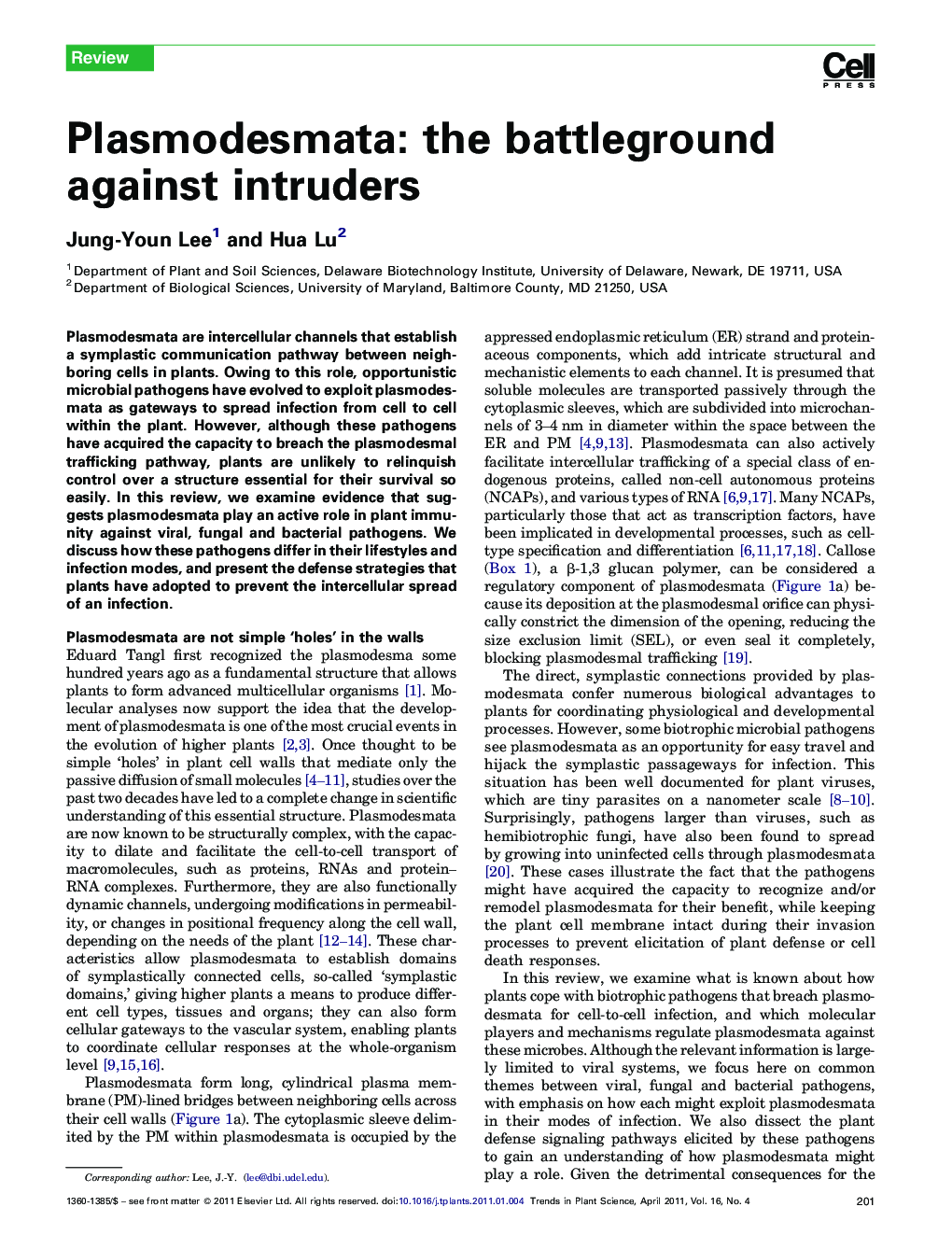| Article ID | Journal | Published Year | Pages | File Type |
|---|---|---|---|---|
| 2826602 | Trends in Plant Science | 2011 | 10 Pages |
Plasmodesmata are intercellular channels that establish a symplastic communication pathway between neighboring cells in plants. Owing to this role, opportunistic microbial pathogens have evolved to exploit plasmodesmata as gateways to spread infection from cell to cell within the plant. However, although these pathogens have acquired the capacity to breach the plasmodesmal trafficking pathway, plants are unlikely to relinquish control over a structure essential for their survival so easily. In this review, we examine evidence that suggests plasmodesmata play an active role in plant immunity against viral, fungal and bacterial pathogens. We discuss how these pathogens differ in their lifestyles and infection modes, and present the defense strategies that plants have adopted to prevent the intercellular spread of an infection.
